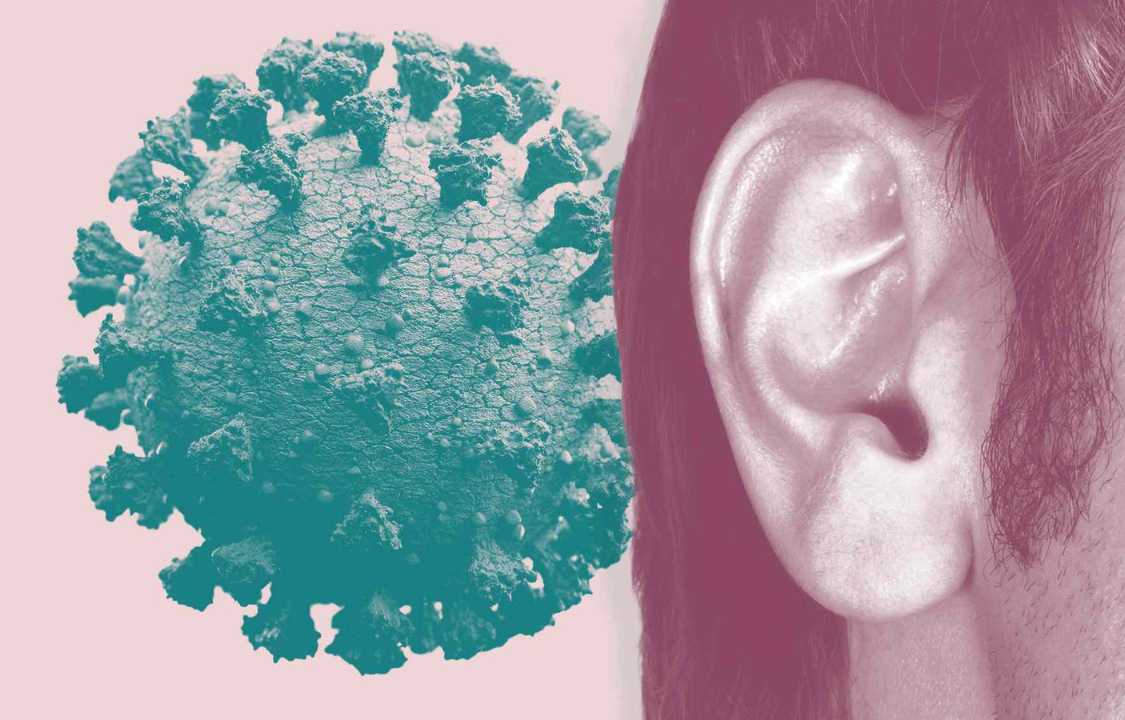He’s not the first person to develop hearing loss after having COVID-19—but doctors aren’t yet convinced of a specific connection.
A recent case report published in BMJ Case Reports has raised concerns regarding a potential link between COVID-19 and sudden hearing loss. This revelation has prompted experts to urge medical professionals to consider screening COVID-19 patients for hearing issues. While the scientific community acknowledges this possible association, it is essential to examine the details, the significance of the reported cases, and the need for further research in this critical area of healthcare.
The Case Report
The case under scrutiny involves a 45-year-old man from the UK who experienced sudden hearing loss in one ear after recovering from COVID-19. The man had a history of asthma and was admitted to the hospital ten days after displaying COVID-19 symptoms. Due to his deteriorating condition, he required intubation and was subsequently transferred to an intensive care unit. After a 30-day intubation period and a series of complications, including pulmonary embolisms, pneumonia, high blood pressure, and anemia, he eventually recovered.
However, approximately a week after being removed from the ventilator and transferred out of the ICU, the patient noticed ringing in his left ear, followed by sudden sensorineural hearing loss (SSNHL). Despite receiving oral steroids for seven days, his hearing only exhibited partial subjective improvement, with no significant recovery through diagnostic testing.
While it is not definitively stated in the case report that COVID-19 caused the patient’s hearing loss, the report suggests a potential connection between the virus and this adverse outcome.
Understanding Sudden Sensorineural Hearing Loss (SSNHL)
Sudden onset sensorineural hearing loss, as defined by the National Institute on Deafness and Other Communication Disorders (NIDCD), is characterized by a rapid and unexplained hearing loss that can occur suddenly or over a few days. Typically, this condition affects only one ear and results from abnormalities in the inner ear’s sensory organs.
The underlying causes of SSNHL vary, and approximately 10% of cases have an identifiable cause. Conditions and factors that can contribute to sudden hearing loss include infections, head trauma, autoimmune diseases, exposure to certain medications, circulation issues, neurological disorders, and inner ear disorders.
Treatment Options for Sudden Hearing Loss
Corticosteroids, which have anti-inflammatory properties, are commonly used to treat sudden hearing loss, particularly when the cause is unknown. These medications work by reducing inflammation, decreasing swelling, and aiding the body in fighting off illness. In some cases, steroids can be administered directly into the ear to avoid systemic treatment.
The success of treatment for hearing loss is significantly influenced by the timing of intervention. Treatment initiated within two to four weeks of symptom onset is associated with better outcomes in reversing or reducing permanent hearing loss. In cases where patients do not respond to treatment or experience severe hearing loss, hearing aids or cochlear implants may be recommended.
The Link Between Sudden Hearing Loss and COVID-19
While sudden hearing loss and hearing issues are not listed as common COVID-19 symptoms by health authorities such as the Centers for Disease Control and Prevention (CDC) or the World Health Organization (WHO), several reports have suggested a potential association between COVID-19 and hearing problems. Notably, these reports do not conclusively establish that COVID-19 directly causes sudden hearing loss; they merely highlight an observed link.
Three case reports, including the one discussed in the BMJ case report, have described patients with no previous hearing issues who developed sudden hearing loss after COVID-19 infections. These reports indicate the occurrence of hearing problems in individuals who contracted the virus. However, it is important to differentiate between an observed association and causation.
Expert Opinions and the Need for Further Research
Medical experts have offered varying perspectives on the potential link between COVID-19 and sudden hearing loss. While the case reports suggest an association, experts emphasize the need for caution in drawing definitive conclusions. Several factors contribute to this cautious approach:
1. Low Prevalence: Sudden hearing loss is a relatively rare condition, occurring in up to 160 out of 100,000 people per year. The reported cases of COVID-19-related hearing loss, while concerning, are limited in number.
2. Lack of Uptick: Health professionals have not reported a significant increase in cases of sudden hearing loss during the COVID-19 pandemic, suggesting that the association may be coincidental.
3. Need for Rigorous Research: To establish a causal link, rigorous scientific research involving a larger and more diverse population is necessary. Controlled studies are essential to determine whether COVID-19 directly contributes to sudden hearing loss.
4. Potential Other Causes: Sudden hearing loss can occur due to a range of factors, including viral infections other than COVID-19. It is crucial to consider other possible causes before attributing hearing loss solely to the virus.
Conclusion and Implications
Sudden hearing loss, also known as sudden sensorineural hearing loss (SSHL), is a condition characterized by a rapid and unexplained decrease in hearing. While some studies have suggested a possible association between COVID-19 and SSHL, the exact mechanisms and causative factors are not yet fully understood. It is imperative for individuals who experience sudden hearing loss to seek immediate medical attention, as prompt treatment with steroids or other interventions can improve outcomes.
Medical professionals should consider the potential link to COVID-19 when evaluating patients with SSHL, especially if they have a recent history of COVID-19 infection or symptoms. Collaborative efforts between otolaryngologists, infectious disease specialists, and researchers are essential to gather more data and shed light on this intriguing connection. Continued research and awareness will help ensure that individuals with sudden hearing loss receive the best possible care, regardless of its underlying cause.

